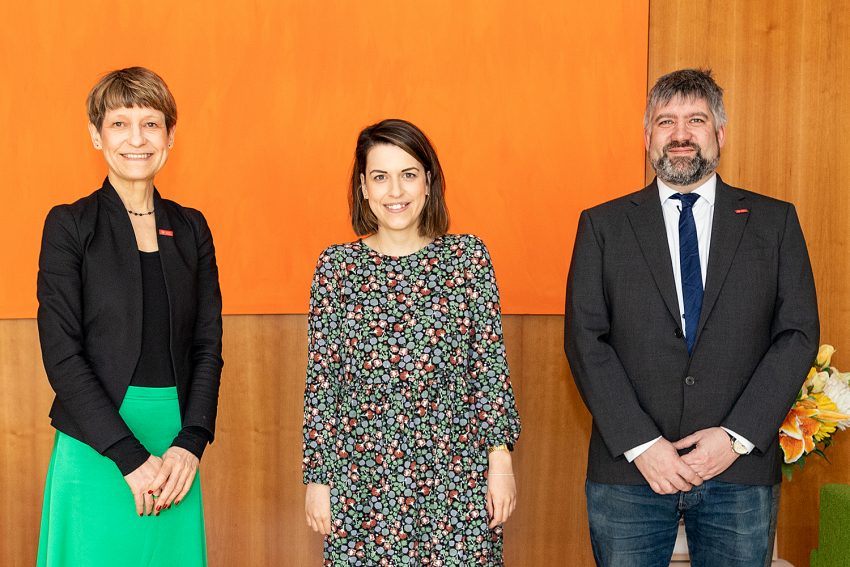“I have always been interested in crises”. Sarah Schäfer is a new assistant professor at the Institute of Psychology
What keeps people healthy in stressful situations? Which traits need to be strengthened in order to be able to cope well with stress? Dr. Sarah Schäfer deals with these questions in her research. She is an assistant professor at the Institute of Psychology since 15 March. In the interview, she presents her work and explains why resilience is particularly important for children and adolescents.
Jun.-Prof. Schäfer, why did you choose TU Braunschweig?

Sarah Schäfer is an assistant professor at the Institute of Psychology. Photo credit: Kristina Rottig/TU Braunschweig
I was very attracted by the profile of the advertised assistant professorship and the research focus in Psychology at TU Braunschweig. My research is about maintaining or restoring health in the presence of stress. The expertise available at the location in the area of ability diagnostics was a big plus. Because I would like to use a broader concept of health in the future, which also includes aspects of functionality and participation. Once I arrived here, I felt very comfortable. I like the parks, cafés and the close proximity to a women’s football club I appreciate. So I could quickly and easily imagine living in Braunschweig.
What exactly do you deal with in your research?
I am concerned with the question of which factors and processes keep people – and especially children and young people – healthy in the presence of stress. And thus with the question of what are relevant resilience factors and processes. We live in a time of intensifying crises and not only the COVID-19 pandemic has shown that such times are particularly challenging for children and adolescents. My research is about understanding which internal resources can be strengthened and which framework conditions should be changed to support young people in coping well with these crises. I am also interested in measures to promote (mental) health. Methodologically, my focus is on evidence synthesis. This means that I summarise existing knowledge by statistically evaluating studies together. This is how evidence-based recommendations are created.

President Prof. Angela Ittel, Prof. Sarah Schäfer and Prof. Christoph Jacob, Dean of Faculty 2 at the time of the appointment. Photo credit: Kristina Rottig/TU Braunschweig
What are the main research areas and projects you will be working on at TU Braunschweig?
My focus will continue to be in the area of resilience research. My research will focus more on children and adolescents than in the past. I would like to contribute with comprehensive evidence syntheses to summarise well the current state of knowledge and identify research gaps. In the future, I would like to examine these research gaps more closely in longitudinal studies and investigate in detail which factors are relevant for a successful school transition (e.g. from primary to secondary school). For this, I would like to use the expertise of the children and young people who participate in our projects. Together with them, we will also develop and evaluate interventions to promote resilience.
What made you decide to do research in this area?
Good question. I have always been interested in “crises” and have always found it exciting to see that people can also successfully overcome very big challenges on very different levels. Understanding this has driven me to work on the topic of resilience. The focus on children’s and adolescents’ health is almost a logical consequence: about 50 percent of all mental disorders develop before the age of 18. Supporting children and adolescents to stay (mentally) healthy can therefore pay off for a lifetime.
What does your everyday working life look like in three key words?
People, meta-analysis, coffee.
Thank you very much.
